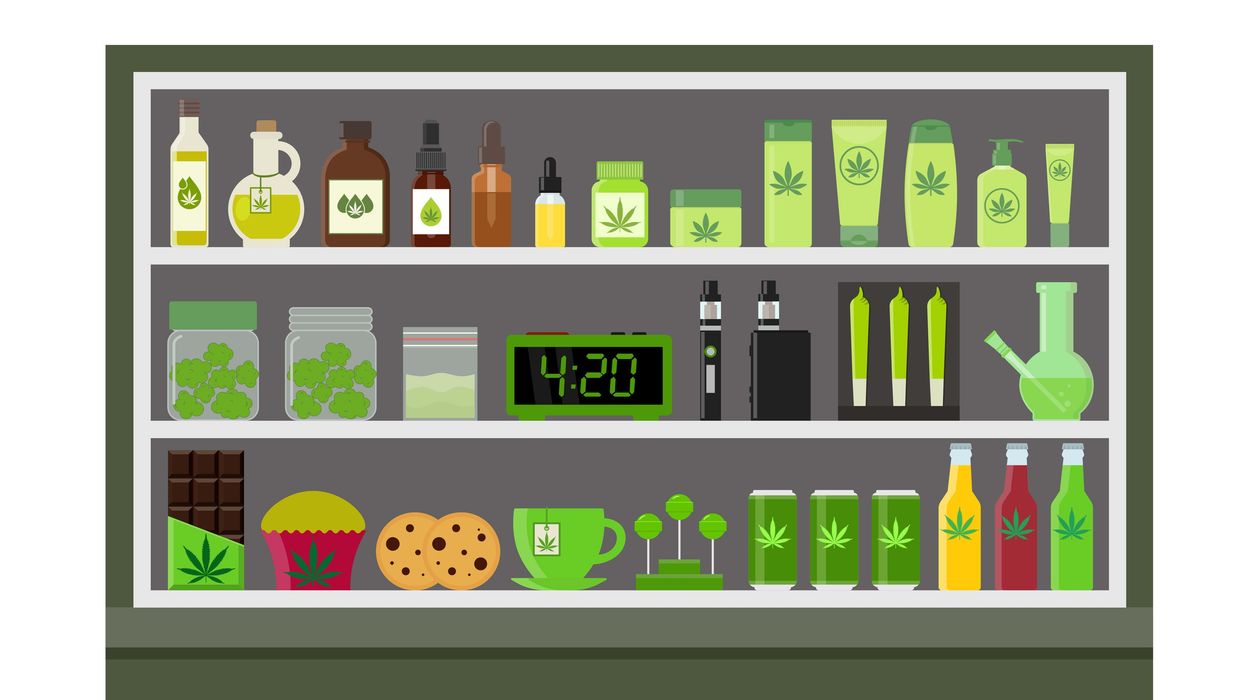The “future of cannabis” is being forecast as female, but the all-women chemical engineer team at Spherex are already hard at work empowering in the present.
Working in a cannabis lab as a woman can be an intimidating intersection, to say the least. While women represent half of the country’s workforce, they only account for 27% of STEM workers, and for as much as the cannabis industry likes to think of itself as woman-friendly, only 27% of the top executives in the leading U.S. cannabis companies identify as female.
Despite these discouraging figures, Colorado-based cannabis lab Spherex has been one step ahead for a while now, inspiring women in STEM and/or cannabis everywhere to keep smashing the glass until the ceiling gives way entirely.
A Brief History of Working in Male-Dominated Industries As a Woman
Beyond STEM and cannabis, it’s no secret that many other industries in the U.S. are largely male-run and male-dominated. It’s also not very surprising: after all, women have only been able to seek “equal-opportunity” (emphasis on the air quotes) employment since 1920.
For decades, women (especiallytrans women and Women of Color) have been forced to go above and beyond their male counterparts simply to prove that they deserve a seat at the table.
And while most companies will claim to be diverse and non-discriminatory towards women, these employees continue to feel unsupported, unappreciated, and in more severe cases, harassed and/or abused.
I mean, when was the last time you saw an article geared toward men on how to survive in their workplaces?
Even worse, when women accomplish the unthinkable and work their way to the top of their industry, they’re often regarded with thinly-veiled disdain.
"Success is okay for a woman if it's in an area that is not [seen as] off limits to them," Madeline Heilman, PhD, professor of psychology at New York University says in an interview. "What we are seeing is a reaction to their violation of stereotyped norms."
Women in Cannabis and STEM: Discouraged From The Start
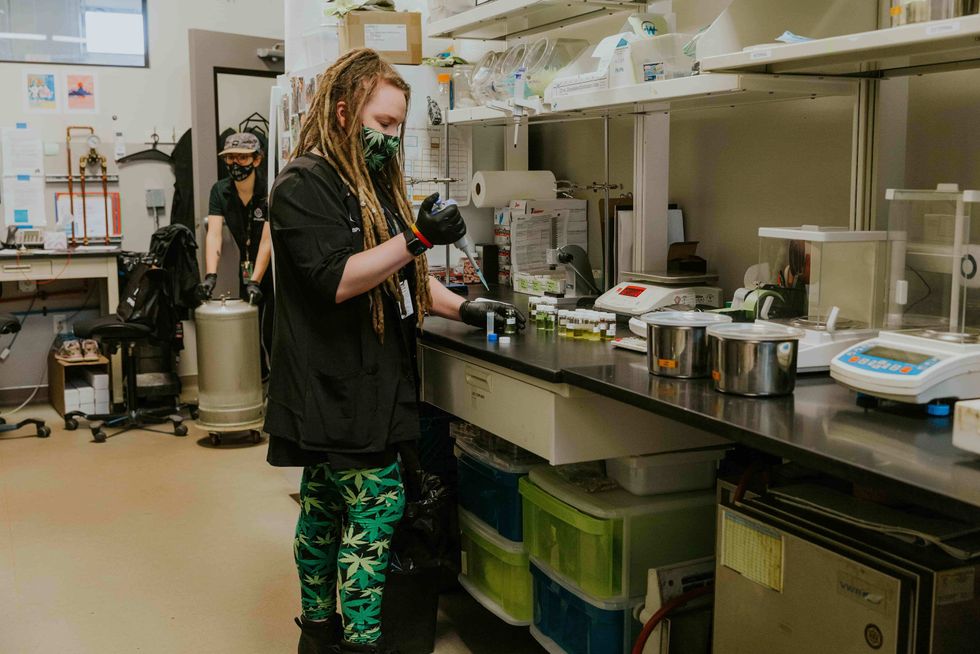
The cannabis industry is certainly an area where women are continuing to succeed, and the STEM sectors have been inching towards more diversity than ever before.
However, to understand the full spectrum of the issue, we have to realize that this responsibility doesn’t fall entirely on the career aspect of these industries: women are discouraged to pursue STEM before they get anywhere near college applications, and the cannabis industry has a blatant history of toxic “bro” culture that quietly keeps women away – or trapped in low level roles despite their knowledge and/or experience.
“Women are continuously getting pushed out by men,” CannaBS Detector Podcast host Kristen Yoder says in an interview.
“Sexual harassment and misogyny is rampant. I know so many young women who were either being hit on and they said something and then got let go, or they had a relationship with someone in the company and then had it held against them and were pushed out.”
The recent #MeToo movement has exposed a lot of these issues and finally held many abusers somewhat accountable for their actions, but we still have a long way to go before true equality is reflected in our workforce among all minorities.
However, we’ve definitely made progress, and companies like Spherex are setting amazing examples for women everywhere who have an interest in STEM, cannabis, or a glorious combination of the two.
“I really think things are getting better. My graduating class was almost 50/50 men and women,” says Spherex Lab Manager Olivia Zinobile, who earned her B.S. in Biological and Chemical Engineering.
“I think it’s important to keep putting it out in the media and normalize women getting into the industry. Simple things like TV shows or movies can make a huge difference.”
For Companies Like Spherex, The Future of Cannabis Being Female is NOW
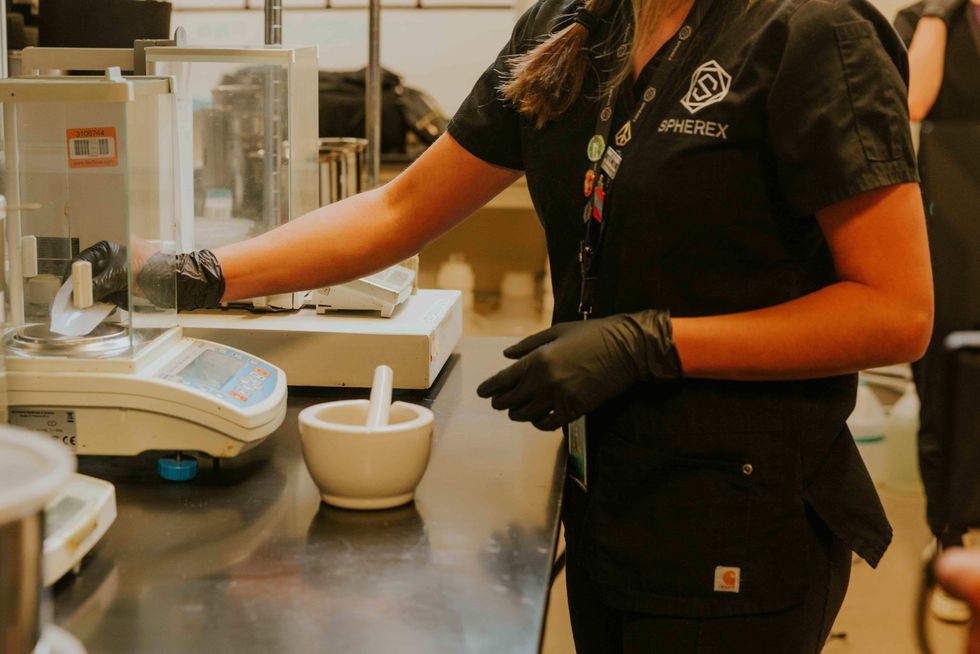
One of Colorado’s leading extraction facilities, Spherex is recognized for their meticulous methods and award-winning premium vape products. The brand is also known for their chemical engineering team, which is, to many people’s surprise, entirely female.
“Our lab team is all women, and the extraction side is all men. It’s an interesting balance,” Zinobile says. “I think it’s awesome to have women in the lab. We didn’t make it that way on purpose – it just happened. But it’s nice to see that women-in-STEM-and-cannabis confidence is rising. I think that’s a huge part of introducing more women into both industries.”
Although cannabis is closer than ever to full federal legality, Zinobile believes much of the stigma surrounding the plant remains, which, as a result, may be holding women back from pursuing careers within the sector.
“There’s such a big stigma on cannabis still, even though there really shouldn’t be. Because of that, it might be kind of scary for women to get into the industry, because they’re thinking, well, I’m already a woman engineer, and that’s tough enough as it is,” Zinobile says. “As it continues to be de-stigmatized and normalized in society, I think that will lead to more opportunities for women.”
Zinobile knew she wanted to pursue STEM from a young age, but cannabis came as a later interest for her. She got her start in cannabis right after she graduated college, when she was presented with an opportunity to work for a hemp company as a lab technician.
“At the time I was 22, so I was like, yeah, why not. I worked there for about 7-8 months, and I didn’t really see myself growing in the position, but I knew I liked the industry and the people around me,” Zinobile says.
“I knew I still wanted to pursue it, so I was searching for roles online when I saw an open position for a lab technician at Spherex. The company started with only seven or eight people, and today the team is around 35. I’ve been here for about four and a half years now.”
While she’s definitely faced her fair share of adversity, Zinobile believes the cannabis industry holds the most hope for true inclusion and diversity among employees – or at least provides a more even base for people to come in at.
“It’s challenging to work in the cannabis industry in general, male or female. It’s tough to work in an industry with a stigma while you’re trying to legitimize all of the hard work that goes into it,” Zinobile says.
“But the great thing about being a woman in the industry is that the people you work with are generally more open-minded, and willing to work towards inclusiveness and legitimization of the industry as a whole.”
On the other hand, Zinobile feels that the bigger issue continues to lie in the STEM sector of the industry, especially for women.
“There’s definitely still a lack of diversity in the STEM part of cannabis. It’s easy for boys clubs to form because of the relaxed, laid-back atmosphere, and it’s tough to find qualified women because of the lack of women in STEM in general,” Zinobile says.
“One of the biggest challenges is the personal and mental part of it: knowing you’re the only woman in the room, in the meeting. You feel this pressure to represent well, and that can be exhausting.”
Zinobile isn’t the first woman in cannabis to feel this way; the industry has a sour reputation for being a boy’s club that favors “bros being bros”-type nepotism over actual qualification and experience.
Despite these ongoing challenges, women like Zinobile are setting a great example for other women interested in pursuing STEM/cannabis, and for the growth of the industry as a whole.
The women at Spherex are focused on scalability: staying ahead of the increasing legalization efforts across the country by upgrading their facilities, increasing their output, and keeping consumers engaged with their high-quality products.
It’s efficiently-run teams like these that will encourage young girls and women everywhere to pursue what they want to pursue by creating a welcoming and inclusive atmosphere.
As for the remaining stigma surrounding cannabis, Zinobile remains hopeful and determined to keep chipping away at it.
“It’ll just be time and education. And that’s also what I love about this industry: you get to talk to people who don’t know anything about weed. All they know is that 40 years ago, they used to buy it from their high school friend,” Zinobile says.
“I like to introduce people to the science behind it. It’s also important to consider the variety of people I work with in the industry. You work with everyone from PhD scientists to someone who’s been growing weed in their backyard for 40 years. And sometimes, that person is a PhD scientist.”
Beyond the consumer-facing stigma the industry is working to dismantle, diversity within the industry behind the scenes is just as important for growth and real progress.
“Now is the time to set a new standard,” Zinobile says. “I still think the cannabis industry could do a lot better, especially with minorities. There aren’t a lot of minority-owned weed companies, and that absolutely comes from a lack of financial backing, and a lack of opportunity as a whole.”
Need a little more Bluntness in your life? Sign Up for our newsletter to stay in the loop.
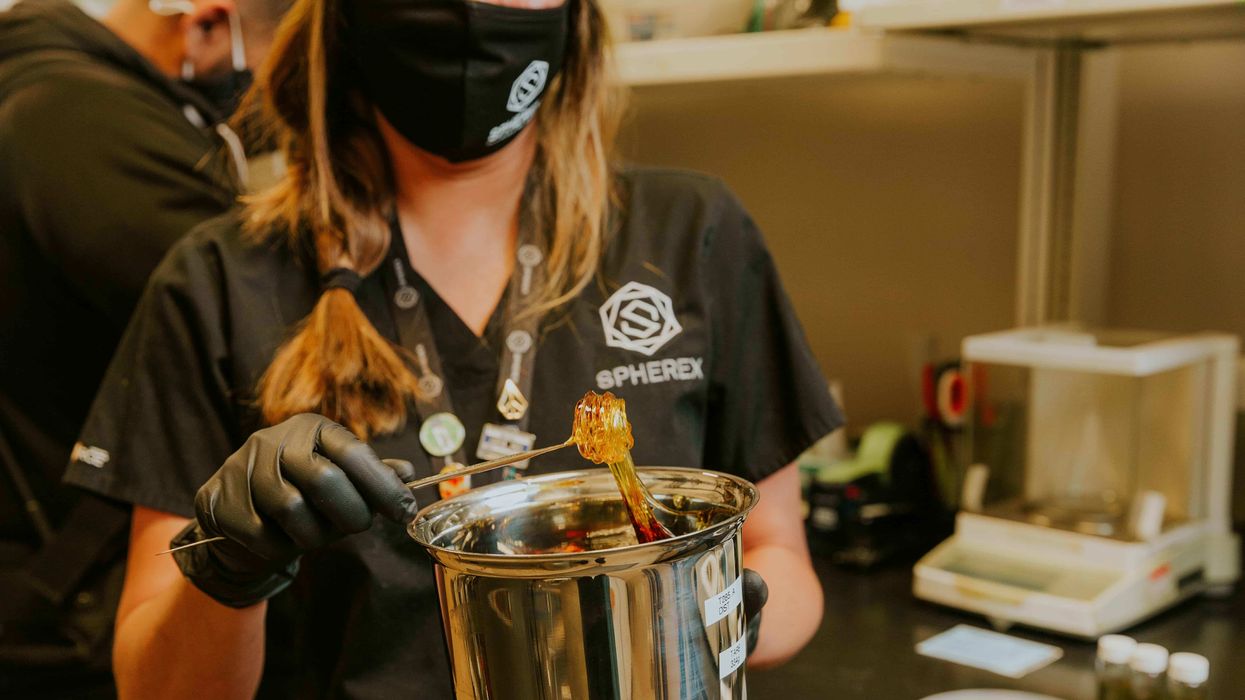











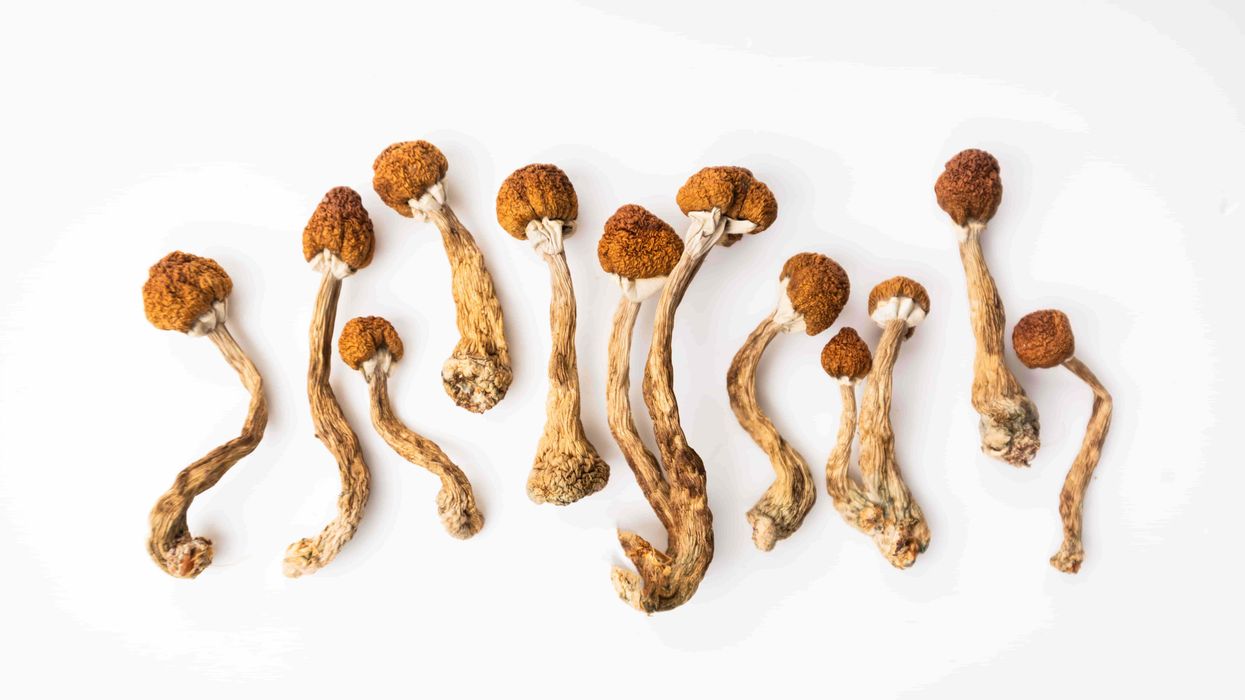
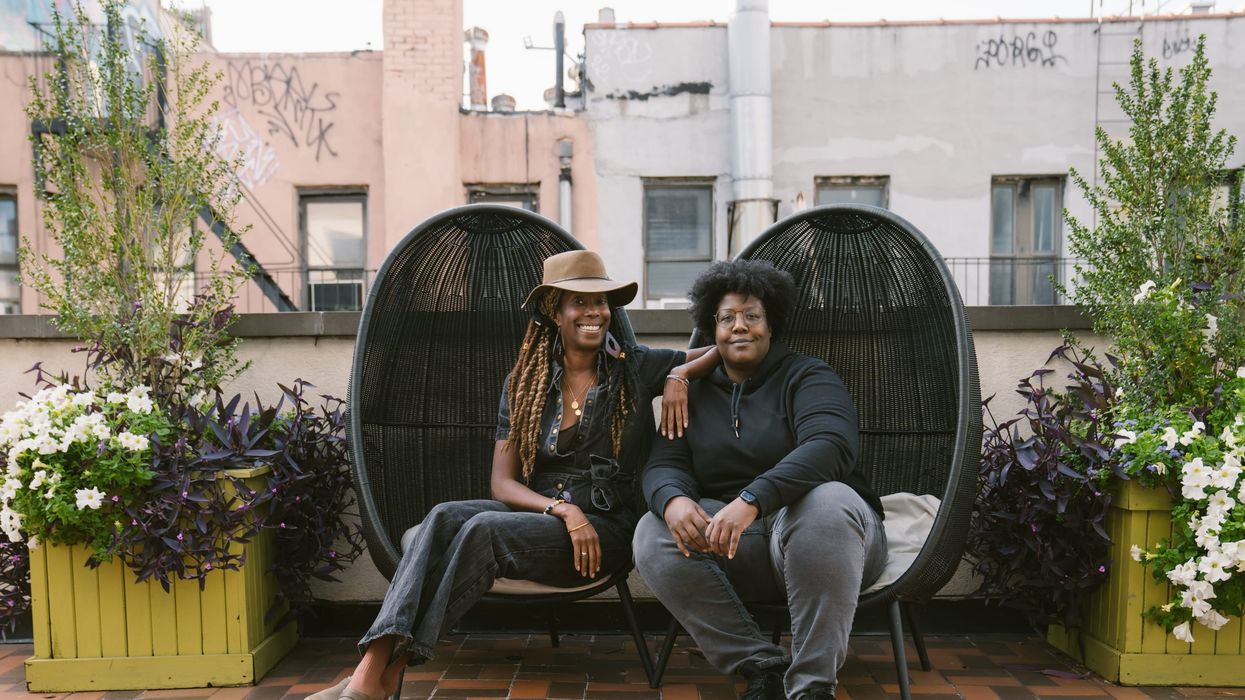
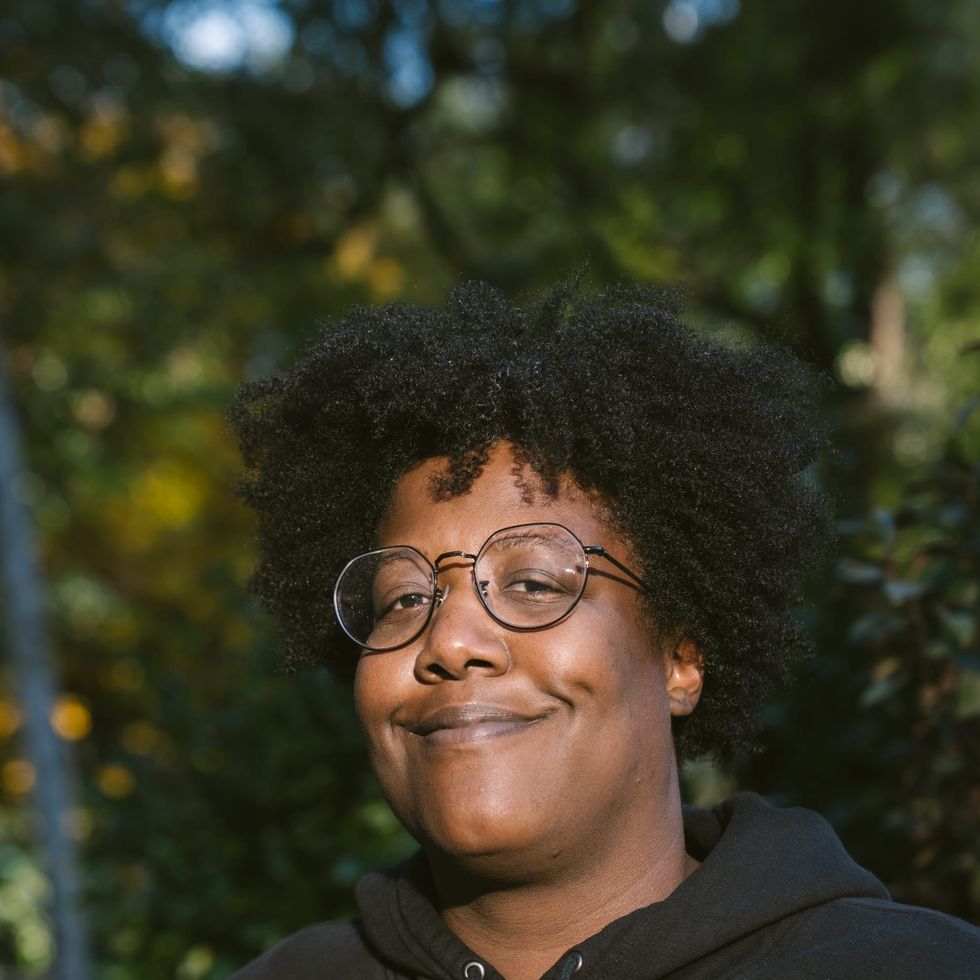 Erven's Angela BaconPhoto: Cindy Trinh 2024 | Erven
Erven's Angela BaconPhoto: Cindy Trinh 2024 | Erven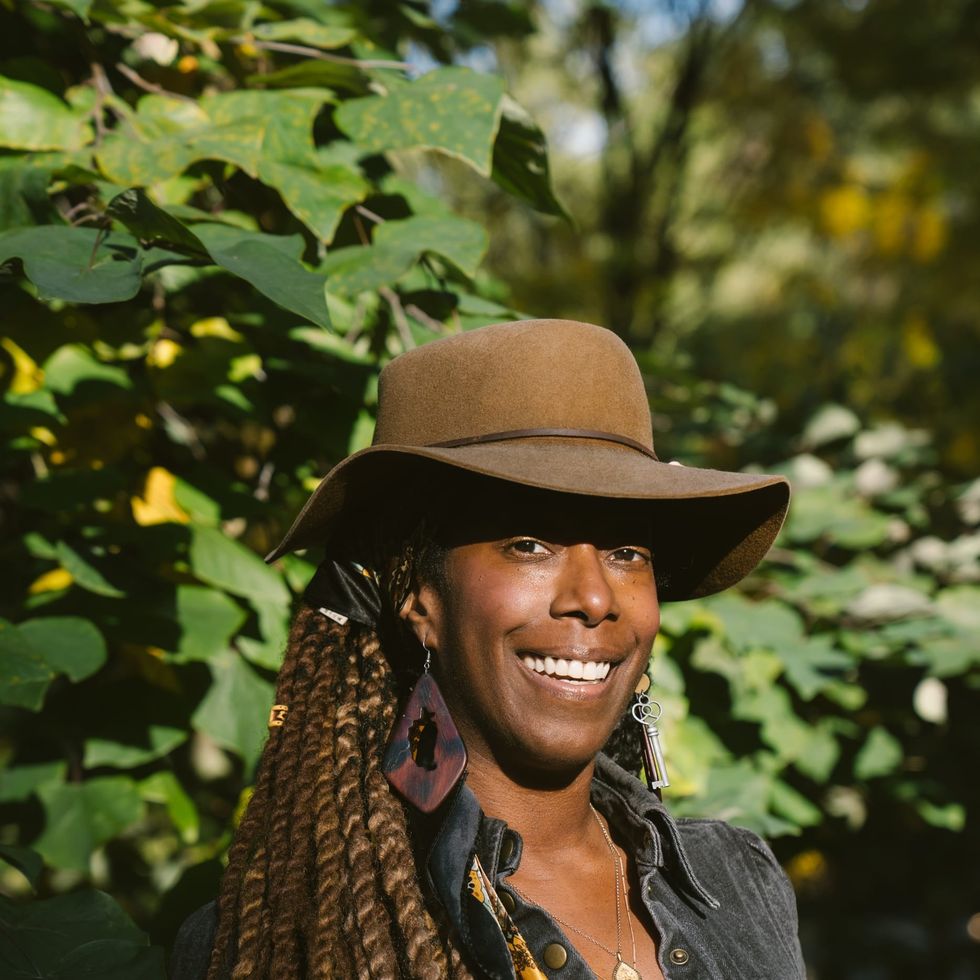 Erven's Solonje Burnett Photo: Cindy Trinh 2024 | Erven
Erven's Solonje Burnett Photo: Cindy Trinh 2024 | Erven
